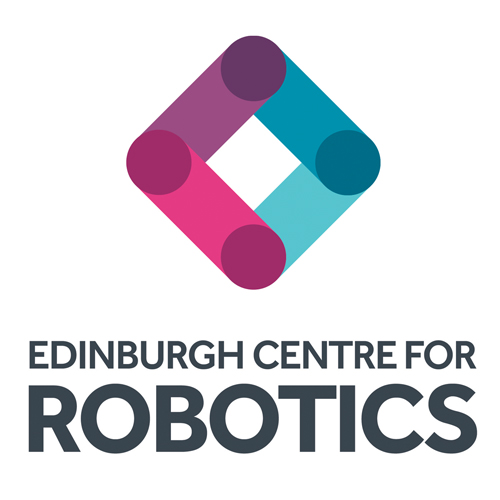Equality, Diversity, and Inclusion
The Edinburgh Centre for Robotics is committed to facilitating a shift in the culture and diversity of the robotics research community through proactive practices to support Equality, Diversity, and Inclusion (EDI) at all levels. A principal aim is to promote wider gender diversity in what is perceived as a male dominated field of robotics and autonomous systems. More generally, the ECR will ensure all students and staff are respected and valued for their unique perspectives and contributions, and that no-one is treated differently or less favourably on the basis of age, disability, gender reassignment, marriage and civil partnership, pregnancy and maternity, race, religion or belief, gender, or sexual orientation.
Student recruitment
The ECR actively encourages applications from underrepresented groups on our training programmes. We have clear guidelines for student recruitment and all academic staff are encouraged to participate in the recruitment process through interview panels or at the regular consensus meetings when student appointments are made. We ensure diversity on our interview panels to make the selection process fair and transparent for all candidates. We also continue to monitor our marketing materials and website to ensure that we include female students and those from diverse backgrounds. Our future recruitment strategy includes visits to universities by female staff and female-only student open days.
Training
We are creating a culture of awareness in the ECR to increase diversity by providing Unconscious Bias Training for academics and professional support staff, and a mandatory online Diversity in the Workplace training course for all students in the first year of their PhD. Speakers at our Annual Conference and Gateway training seminars from academia and industry will be selected to reflect our commitment to diversity.
Support
We promote increased student satisfaction by creating an inclusive, supportive learning environment. We address the issue of potential isolation that frequently arises from low representation in small cohorts by supporting cross-cohort activities, cross-CDT events, and links to the wider PhD student communities within the partner institutions, which have sufficient mass to overcome this issue. Inclusion will be enhanced by providing female-only events (e.g., hackathons) and support groups. Our approach to training is specifically designed to provide students with a flexible working pattern thus maximising retention for students with personal circumstances, such as carers or those with health-related issues.
We also recognise that EDI is a matter for all staff and students within the ECR, but to ensure that we are able to provide the required level of support, Professor Barbara Webb is primarily responsible for EDI and Dr Michael Herrmann provides pastoral care. The ECR is also fully aligned with the EDI policies of both Heriot-Watt University and the University of Edinburgh.

